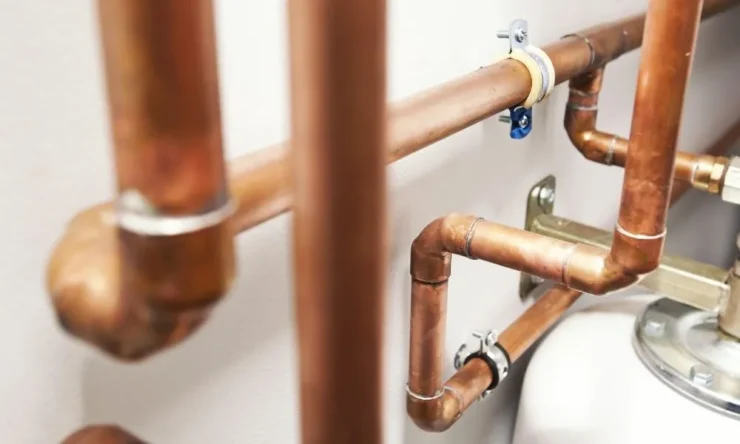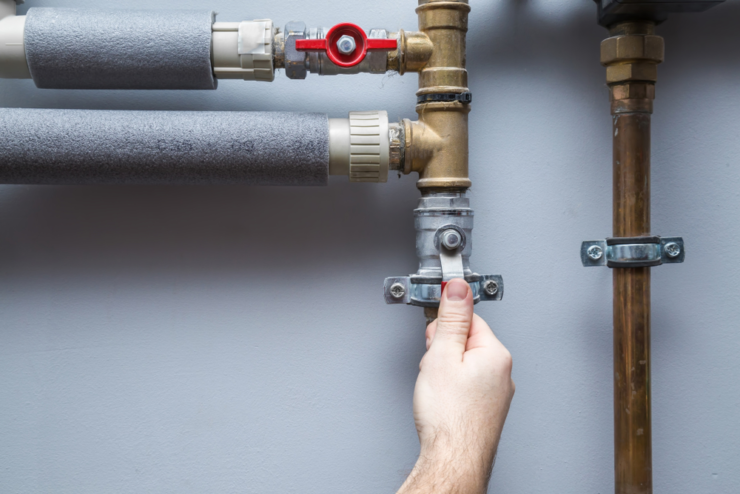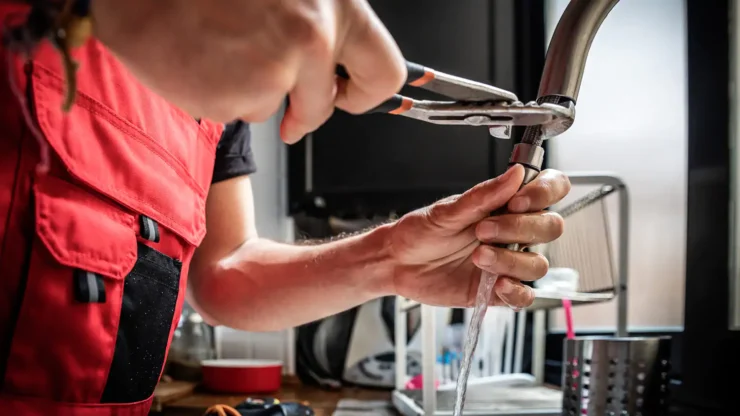The plumbing system in your house is composed of multiple parts. It’s quite delicate and needs regular maintenance. Any unusual activity in your plumbing system can indicate issues, like loose-fitted pipes or premature wear that’s narrowing the opening.
Any unusual sound from the water pipes, such as whistling, suggests an underlying issue. Your water pipes whistle when the opening (where the water is released from) gets narrow due to dirt or mineral buildup.
Water pipes are not supposed to rattle or create any kind of noise. But if they produce a weird sound, that’s a sign something is wrong with your plumbing. Let’s discover some common reasons behind the whistle in water pipes and some plumbing tips.
Common Causes of Unusual Whistling Sound in Plumbing Systems

The plumbing parts degrade over time. This premature wear and tear accelerate the water traveling in the pipes. As a result, the water is forced through the narrow plumbing parts. The plumbing manufacturer that installed these pipes in your home can help detect the problem. In the meantime, let’s check out the issues that might cause whistling and other unusual sounds in your water pipe.
Check If The Whistling Sound Comes From One or All Faucets
A whistling sound coming from a specific system indicates a problem with the aerator. Cleaning the buildup or replacing the aerator can fix the issue. Plumbing service provider companies, like Hedlund Plumbing, can identify the root cause of the whistling sound and may also help fix other plumbing issues. Whistling from all systems indicates damage in the main water line. You might have to replace the entire valve to ensure smooth water flow.
Mineral Buildup
If you have installed the water pipes recently, chances are there’s a manufacturing defect. They are not sized well. But that’s mostly never the case. Your water pipes can become narrow due to the mineral and debris buildup. This can block the water from moving through the pipes. They also narrow the opening, increasing the water pressure. This leads to the whistling noise. In some cases, the water pressure is higher than average, which causes your water pipes to whistle.
How To Fix The Whistling Sound: 5 Tips That May Help

Check If The Pressure Is Normal
A whistling sound is produced when the water pressure exceeds the normal range. A water pressure regulator is explicitly used to detect the current water pressure and change it as and when needed. Most modern plumbing units are equipped with some kind of water pressure checker that may assist you in reading the water speed. They are engineered to allow users to adjust the settings to normal levels. The water pressure is normally between 45 and 80 PSI.
Take the readings and send them to a plumber to know whether it’s the water pressure causing the blockage. Anything above 75 is considered high. Remember, water traveling at speed higher than normal can cause permanent damage to your pipes. And the whistling sound might indicate just that. It should fall in the middle range to work well.
Like how the pipes produce a whistle when the pressure is high, you might hear an unusual moaning noise when the pressure falls below the normal range (40 psi). Either way, calling a plumber is your best bet.
Reducing It Can Help
You can DIY this or call a plumber for help. It’s advisable to have a professional adjust the screw on the water regulator. If you can’t locate a water regulator, contact an electrician to install one. Every home requires a water pressure gauge or regulator to adjust the pressure settings.
Fix Clogged Pipes
Another cause of the whistling sound is the mineral build-up in the plumbing components. This buildup can degrade the plumbing system over time and reduces the space for the water to travel. That’s quite a common issue in places that receive hard water, which contains several minerals that can deteriorate the pipes, narrowing the opening and blocking the water flow.
Unfortunately, there’s no repair option for a clogged pipe. You can still ask a certified plumber if there’s any way you can unclog the pipe, but chances are you will have to replace it eventually. If the pipes are old and extremely clogged with dirt and mineral, it’s best to replace them.
Replace The Aerator

The aerator in your faucet can also get clogged with dirt, debris, and mineral deposits. If that’s the case, you will need to have them cleaned or replaced. If you hear the whistling sound from a specific faucet, it might be because of the faulty aerator. This buildup leads to a slow water stream or an abnormal flow.
Unscrew the aerator from the faucet and wash it with white vinegar. Let the solution sit on the aerator for 1-2 hours before screwing it back into the faucet. This should remove the mineral or any form of dirt buildup from the aerator. You can also use a toothbrush for gentle scrubbing.
Replacing the aerator is your last resort if none of the above-mentioned tips works.
Contact a Professional Plumber
So, are you still stuck with the whistling sound from the water pipes? If none of the above tips has worked so far, it’s best to leave this to an experienced plumbing company. They will identify the issue and suggest the most suitable solution. The plumber will also check other plumbing parts and diagnose issues that can lead to expensive repairs in the future.
Bottom Line
A whistle in the water pipes is not always a cause for concern. Sometimes, they indicate the air bubbles in your water pipes. But the issue can be more serious and might indicate a problem in your entire water line. Contact a certified and experienced plumber to detect the root cause of the problem. They will change the aerator, replace the water line, repair the damaged plumbing parts, and do whatever it takes to fix the noise in your water pipes.

